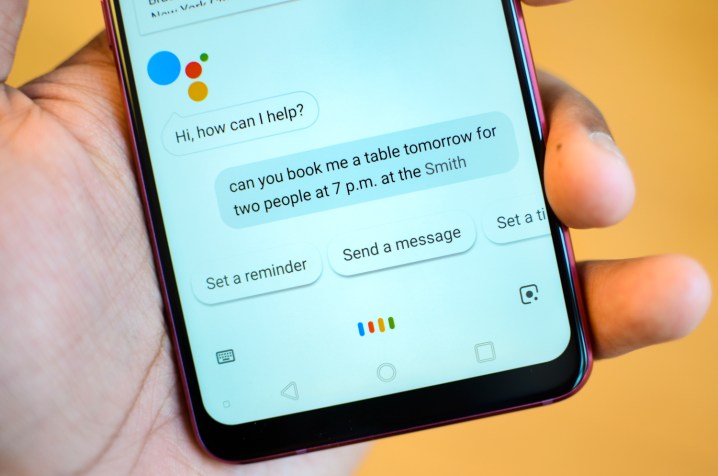
Google’s Duplex may well change the concept of a digital assistant forever. Gone are the days when a digital assistant could really only help you with the weather and searching the web. Google Duplex can do things like book tables at restaurants by simply calling the restaurant and asking for a table — all while sounding like a real human. Turns out, however, at least for now, it may be a real human on the other line.
According to a report from the New York Times, around 25% of the calls placed by Google Duplex start with a human on the other end of the line, and in 15% of cases, humans intervene in the call at some point. That suggests that around 60% of calls are fully autonomous, however, in the New York Times’ tests, three of the four successful bookings were completed with some level of human interaction.
There are good reasons that humans might have to intervene in the Google Duplex calls. For example, the New York Times notes a situation in which Duplex didn’t recognize that reservations were available. In other situations, a human might be involved if it suspects that the user might be a spammer.
For now, Google seems to be focusing on a single domain — restaurant reservations. When Duplex was first introduced, Google pitched it as something that could handle all kinds of reservations, and it is likely the system will expand over time. For now, however, it seems to be sticking to restaurants.
According to Google, the goal is to make sure that implementation of Duplex is done right, and that means taking the time to train it properly. With any artificially intelligent system, data is the key to improving. As more calls are placed through Google Duplex, the system is likely to learn and, eventually, its dependence on human intervention will decrease. That said, Google Assistant vice president Nick Fox mentioned to the New York Times that it was in no rush to completely do away with human interaction because of the fact that it didn’t want to make it harder for restaurants to make bookings.
Editors' Recommendations
- The Google Pixel 8a price just leaked. Here’s how much it’ll cost
- The 6 biggest announcements we expect from Google I/O 2024
- I’ve finally given up on the Google Pixel Tablet
- Have one of these Google Pixel phones? You’re getting Circle to Search
- Google Pixel 9: news, rumored price, release date, and more
